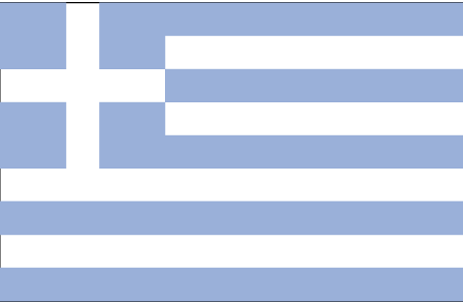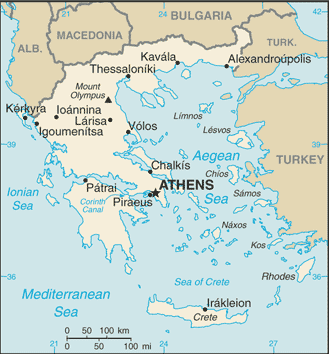Investing in Greece


Greece has a capitalist economy with the public sector accounting for about 40% of GDP and with per capita GDP about two-thirds that of the leading euro-zone economies. Tourism provides 15% of GDP. Immigrants make up nearly one-fifth of the work force, mainly in agricultural and unskilled jobs. Greece is a major beneficiary of EU aid, equal to about 3.3% of annual GDP. The Greek economy grew by nearly 4.0% per year between 2003 and 2007, due partly to infrastructural spending related to the 2004 Athens Olympic Games, and in part to an increased availability of credit, which has sustained record levels of consumer spending. But the economy went into recession in 2009 as a result of the world financial crisis, tightening credit conditions, and Athens' failure to address a growing budget deficit, which was triggered by falling state revenues, and increased government expenditures. The economy contracted by 2% in 2009, and 4.8% in 2010. Greece violated the EU's Growth and Stability Pact budget deficit criterion of no more than 3% of GDP from 2001 to 2006, but finally met that criterion in 2007-08, before exceeding it again in 2009, with the deficit reaching 15.4% of GDP. Austerity measures reduced the deficit to 9.4% of GDP in 2010. Public debt, inflation, and unemployment are above the euro-zone average while per capita income is below; unemployment rose to 12% in 2010. Eroding public finances, a credibility gap stemming from inaccurate and misreported statistics, and consistent underperformance on following through with reforms prompted major credit rating agencies in late 2009 to downgrade Greece's international debt rating, and has led the country into a financial crisis. Under intense pressure by the EU and international market participants, the government has adopted a medium-term austerity program that includes cutting government spending, reducing the size of the public sector, decreasing tax evasion, reforming the health care and pension systems, and improving competitiveness through structural reforms to the labor and product markets. Athens, however, faces long-term challenges to push through unpopular reforms in the face of often vocal opposition from the country's powerful labor unions and the general public. Greek labor unions are striking over new austerity measures, but the strikes so far have had a limited impact on the government's will to adopt reforms. An uptick in widespread unrest, however, could challenge the government's ability to implement reforms and meet budget targets, and could also lead to rioting or violence. In April 2010 a leading credit agency assigned Greek debt its lowest possible credit rating; in May, the International Monetary Fund and Eurozone governments provided Greece emergency short- and medium-term loans worth $147 billion so that the country could make debt repayments to creditors. In exchange for the largest bailout ever assembled, the government announced combined spending cuts and tax increases totaling $40 billion over three years, on top of the tough austerity measures already taken. Greece, however, struggled to boost revenues and cut spending to meet 2010 targets set by the EU and the IMF, especially after Eurostat - the EU's statistical office - revised upward Greece's deficit and debt numbers for 2009 and 2010. Greece's lenders are calling on Athens to step up efforts in 2011 to increase tax collection, shore up public enterprises, and rein in health spending, and are planning to give Greece more time to repay its EU-IMF loan. Greece responded by introducing major structural reforms, but investors still question whether Greece can sustain fiscal efforts in the face of a bleak economic outlook and public discontent.
Athens Exchange - http://www.ase.gr
Bank of Greece - http://www.bankofgreece.gr/
Diana Shipping - http://www.dianashippinginc.com/
DryShips - http://www.dryships.com/
Emporiki Bank - http://www.emporiki.gr/
Euroseas - http://www.euroseas.gr/
Hellenic Exchanges - http://www.helex.gr/
Hellenic Petroleum - http://www.hellenic-petroleum.gr/
National Bank of Greece - http://www.nbg.gr/
Navios Maritime Holdings - http://www.navios.com/
Paragon Shipping - http://www.paragonship.com/
TOTAL Greece - http://www.total.gr/
Countries that border Greece: Albania | Macedonia | Bulgaria | Turkey
Learn more:
Back to Country Investing



